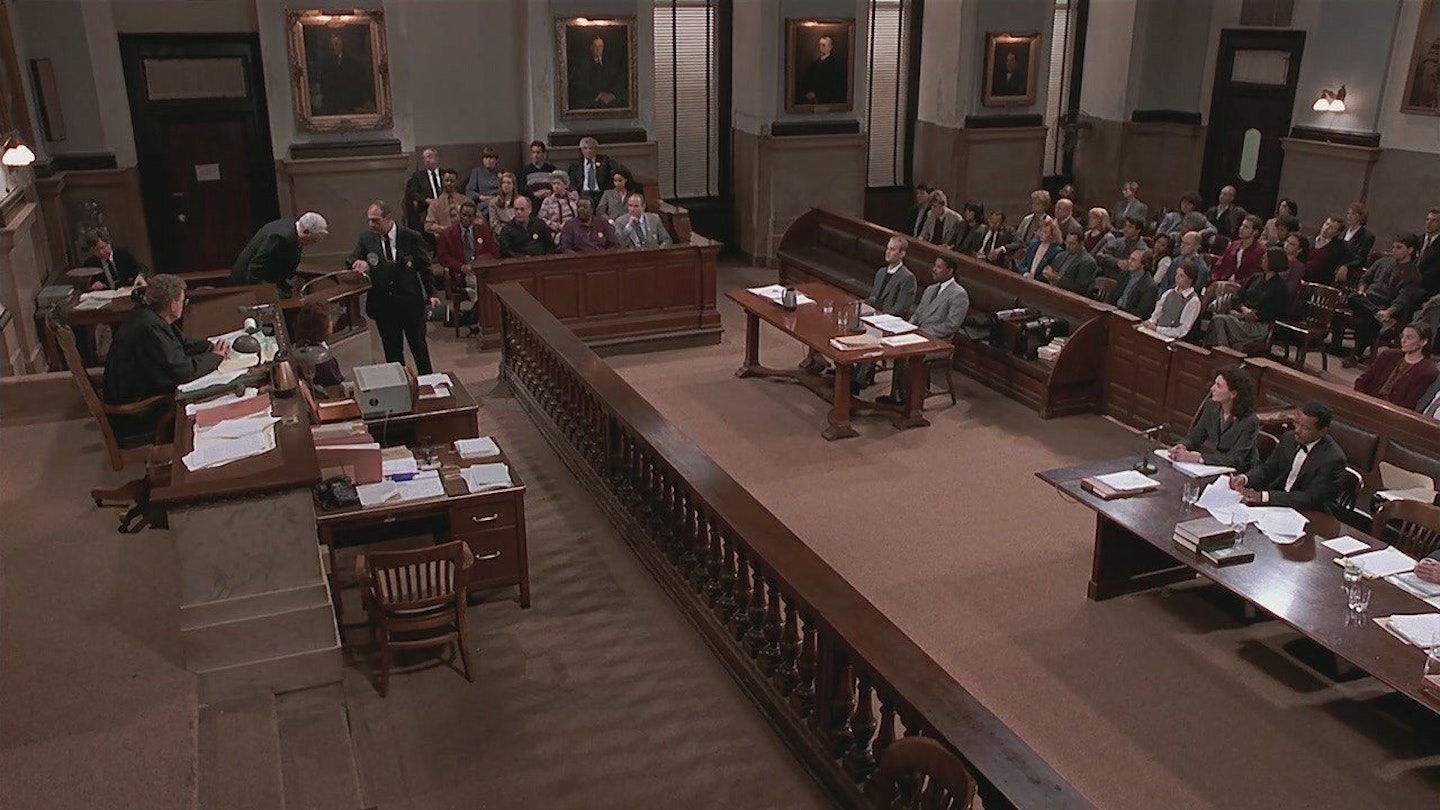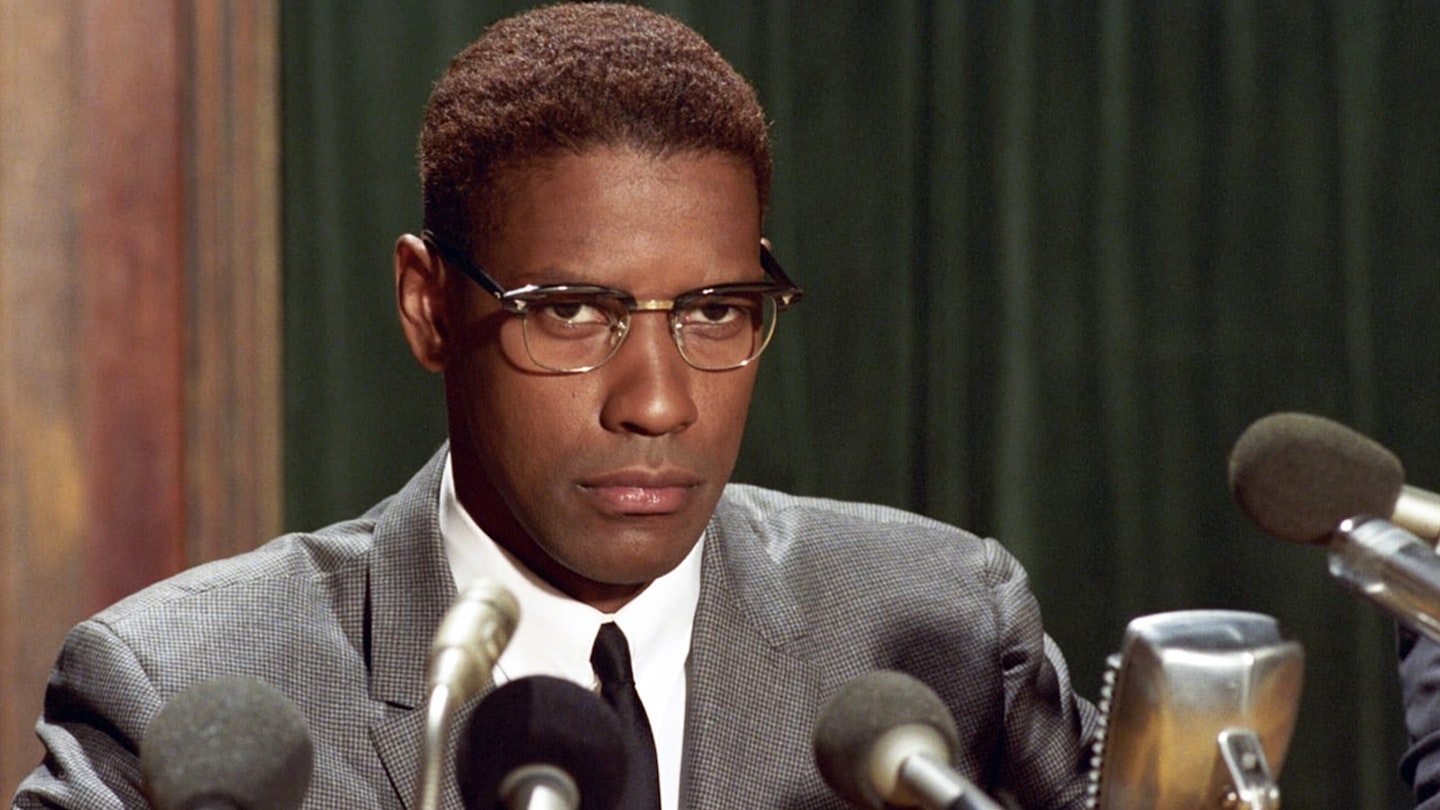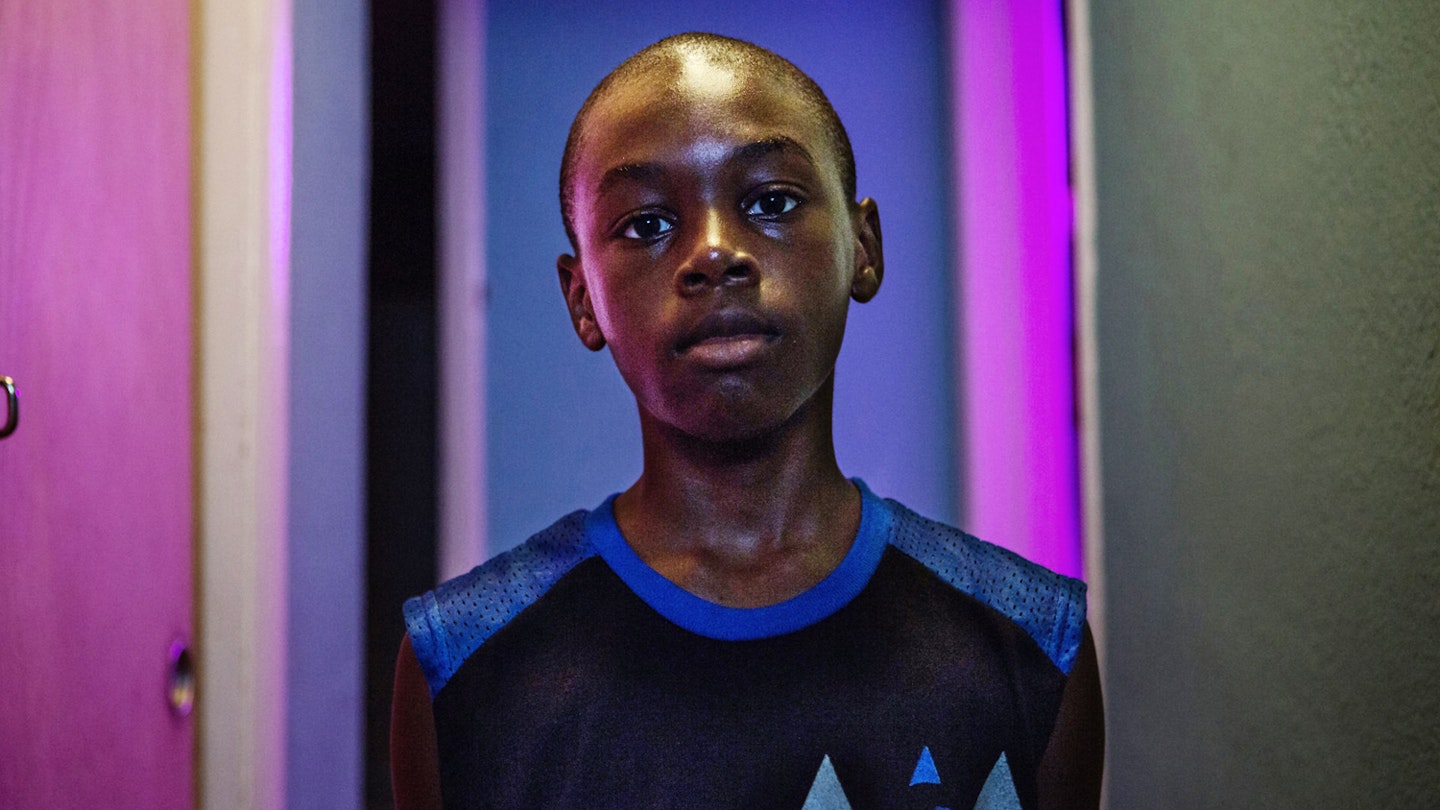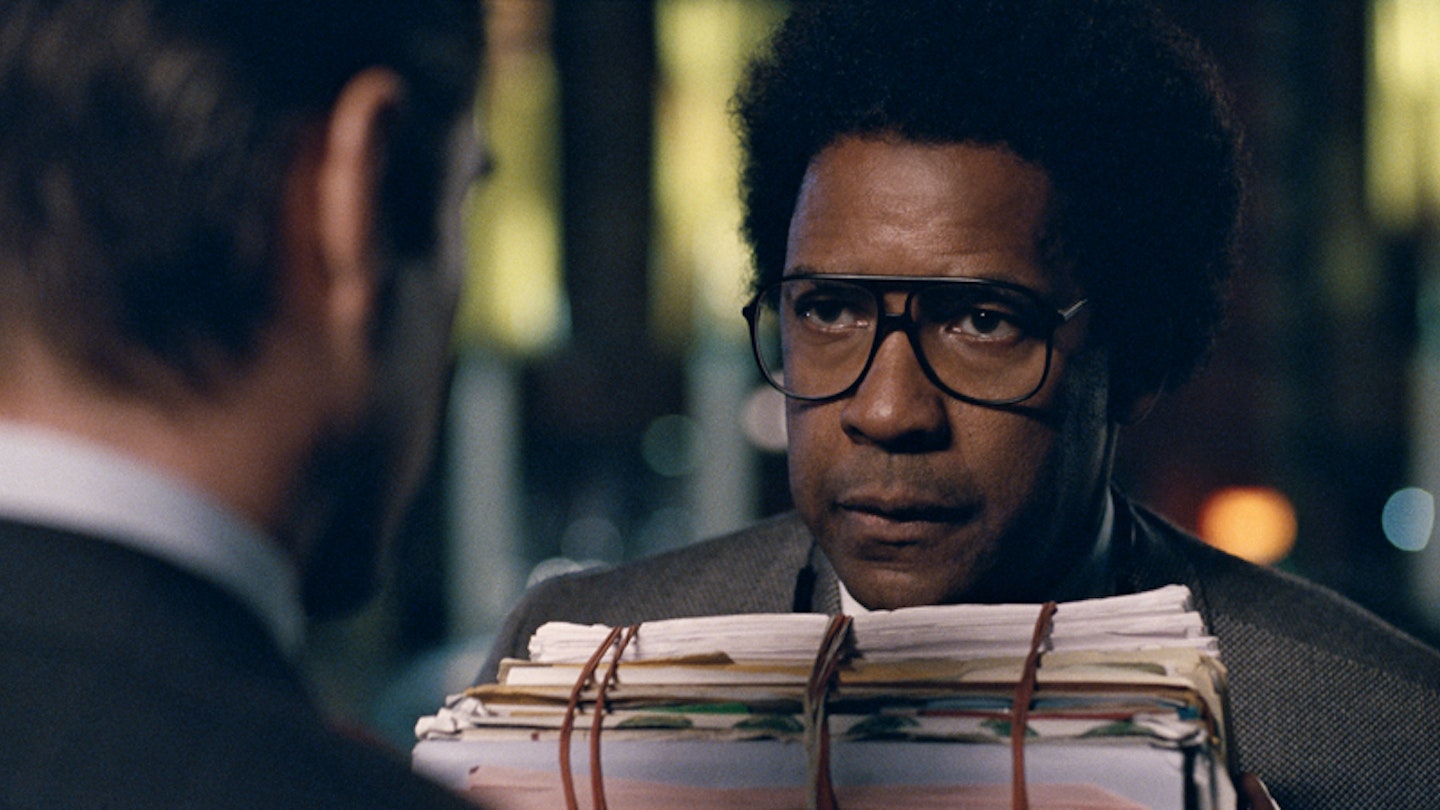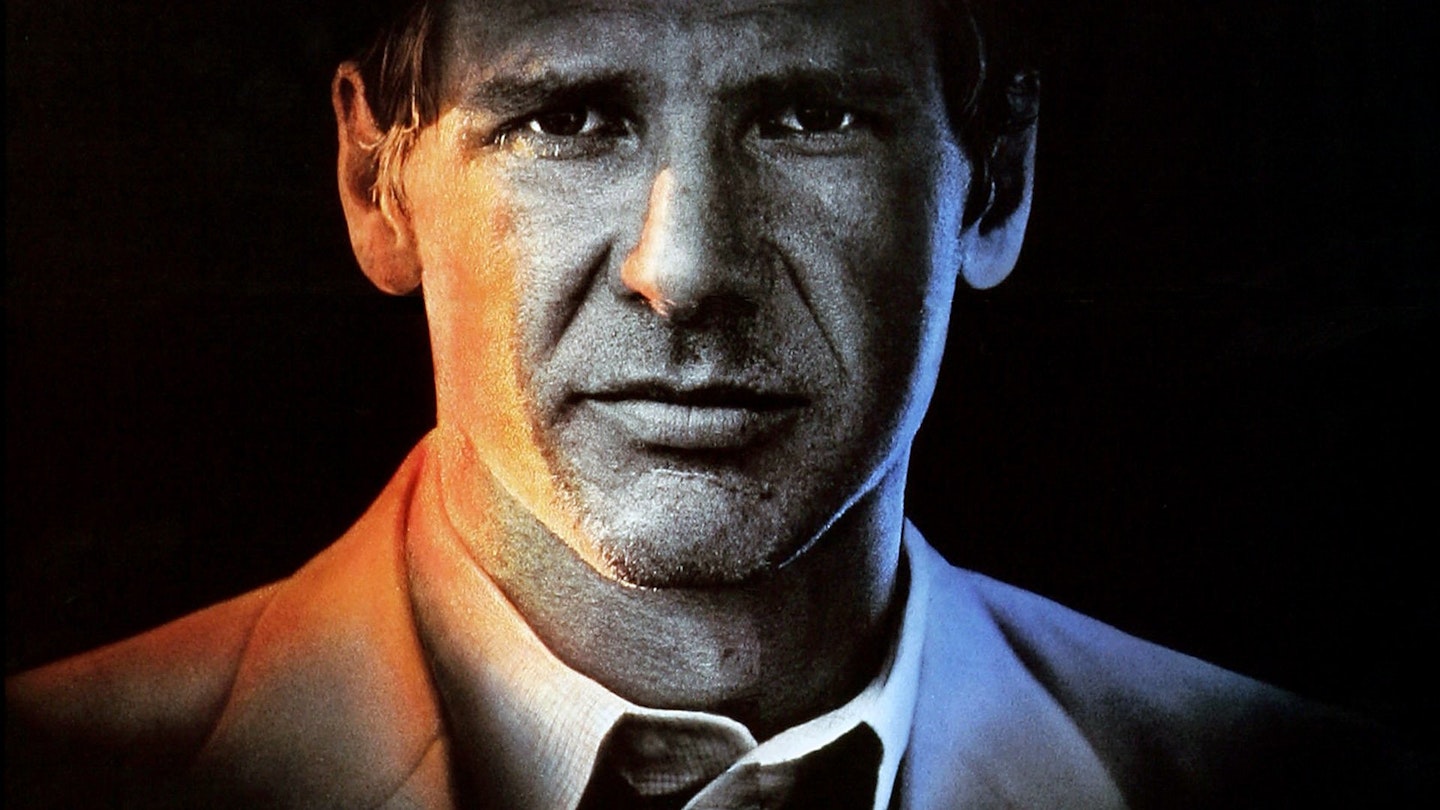The first major Hollywood film with a gay rights theme, this is, inevitably, determinedly mainstream. In its appeal to the emotions, its showy dramatic role for Hanks and its purposeful courtroom fireworks between Washington and pitiless opposing trial lawyer Mary Steenburgen, it is conservatively designed to provide a general audience with something tasteful to chew on.
Always good company, the personable Hanks dons convincing cosmetic lesions and bravely wastes away before our eyes as AIDS victim Andrew Beckett, a going-down-fighting lawyer who is determined to have his day in court, exposing the prejudices and discriminatory practices of the prestigious law firm that fired him. Washington has the thornier role as the homophobic attorney who reluctantly presses his former adversary's lawsuit, alive to the personal significance of the issue despite his butchly over-emphatic aversion to homosexuals.
Part courtroom drama, the narrative engages one's sympathies and slyly grips with a falsely laid trail of tension: will head of the firm Jason Robards be goaded into doing a Jack Nicholson on the stand? Will the firm associate, whose conscience is clearly bothering him, break down or come out? More surprisingly, given director Demme's satirical bent and his usual shunning of sentimentality, this is also, in part, reminiscent of a disease of the week TV movie with the attendant mush portions that implies, as Hanks is cheered on by a Too Good To Be True support system of devoted lover Miguel (Antonio Banderas), indomitable mother (Joanne Woodward) and a Walton-like pack of kinfolk, supporting their relative to the teary end.
One suspects that those most personally and angrily concerned by the subject matter will be dissatisfied by the "If Only" niceness on display and the timidity with which Andy's relationship with Miguel and his lifestyle is (barely) drawn. But that's another movie. This one comes down quite successfully to a touching demand for fraternity and justice, and is at its most powerful when Andrew, like a rape victim put on the defensive, is subjected to an appealing ordeal on the stand, an intrusion into privacy aimed to shame him as a "deviant", and in its undeniably groundbreaking attempt to explore men's fearful and belligerent attitudes to their own sexuality
